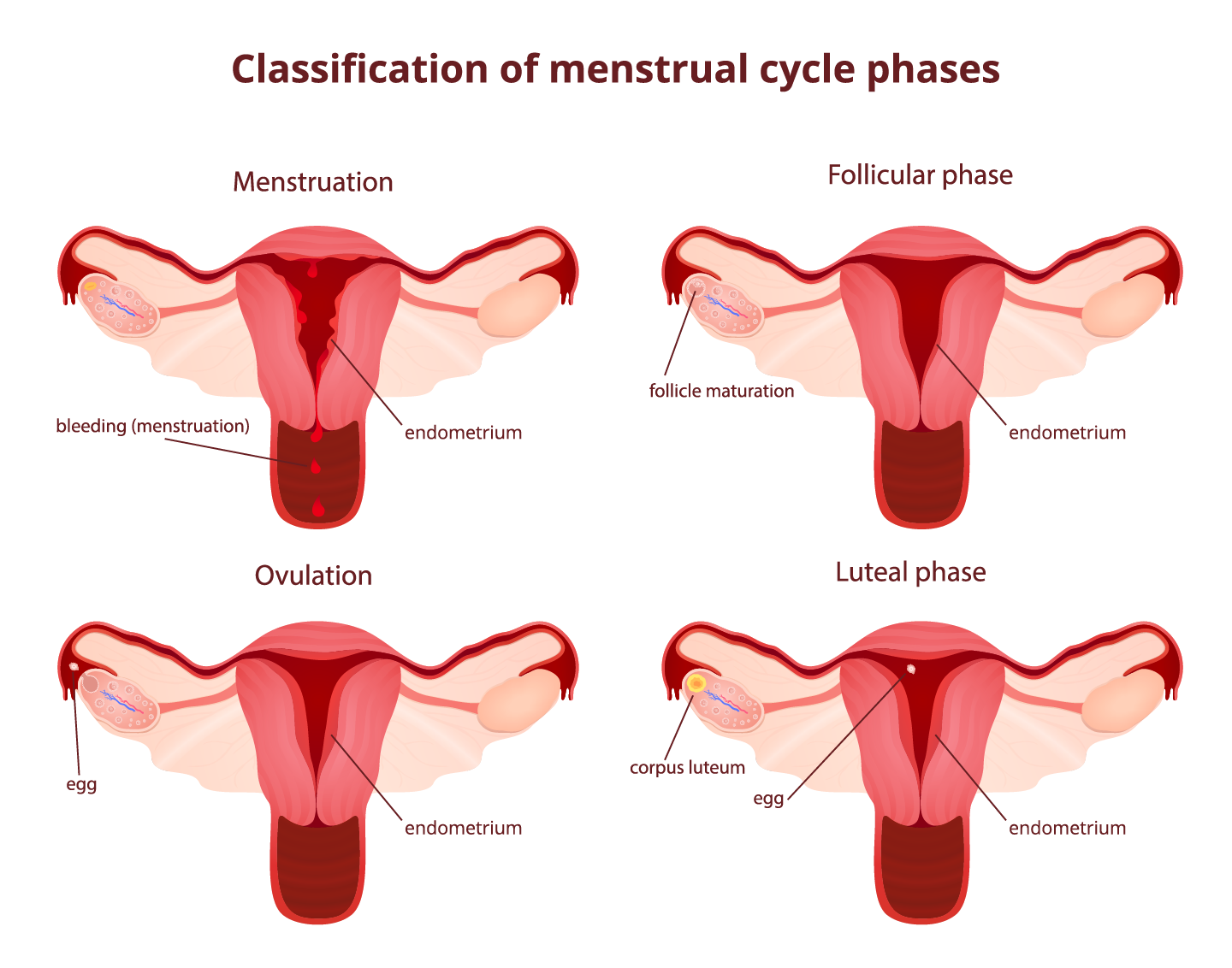Menstrual Cycle Phases and Pregnancy
 Timing is everything, whether you’re trying to conceive naturally or undergoing professional fertility treatment. That’s why tracking your menstrual cycle can play an important part of determining fertility. If you have a record of your cycle, it can help a fertility doctor determine the ideal infertility treatments for you. Houston, TX reproductive health specialist Dr. Sonja B. Kristiansen encourages women to monitor their monthly cycle, even if just to understand their body and their needs better.
Timing is everything, whether you’re trying to conceive naturally or undergoing professional fertility treatment. That’s why tracking your menstrual cycle can play an important part of determining fertility. If you have a record of your cycle, it can help a fertility doctor determine the ideal infertility treatments for you. Houston, TX reproductive health specialist Dr. Sonja B. Kristiansen encourages women to monitor their monthly cycle, even if just to understand their body and their needs better.
The team at Houston Fertility Center would like to go over the different phases of a woman’s monthly cycle so you understand when you are most fertile and can plan accordingly. We should note that the days/timeframes listed below can vary from woman to woman, which is just another reason why knowing your cycle plays a crucial role in starting a family.
Menstrual Phase (Days 1-5)
The first phase of a woman’s menstrual cycle, this is when women will get their period. If the egg from the previous cycle is not fertilized and a woman does not become pregnant, certain hormone levels begin to drop. The lining in your uterus will have previously thickened in the previous cycle in order to support a fertilized egg for pregnancy. Since it is no longer needed, this lining is shed as a combination of blood, tissue, and mucus.
During the menstrual phase, women may experience the following symptoms in addition to regular bleeding:
- Cramps
- Bloating
- Breast sensitivity
- Headaches
- Fatigue
- Lower back pain
- Irritability
- Mood swings
This phase can last up to a week for some women.
Follicular Phase (Days 1-13)
As the menstrual phase is occurring, the follicular phase is also in progress. The pituitary gland sends signals for your body to release follicle-stimulating hormone (FSH), which helps with the development of viable eggs in the ovaries. As a follicle matures, it will secrete hormones that prompt the uterus to develop a soft tissue lining that can support an egg should it be fertilized.
The follicular phase can last around 16 days or longer.
Ovulation Phase (Day 14)
As estrogen levels rise during the follicular phase, the pituitary gland releases luteinizing hormone (LH) as a response. LH is the hormone that starts the process of ovulation. This means that a mature egg is released from the ovary so it can travel to the fallopian tube. There it will wait to be fertilized.
Ovulation happens right in the middle of a woman’s cycle, and typically lasts around 24 hours. If that window has passed and the egg is not fertilized, the egg will dissolve and die.
Luteal Phase (Days 15-28)
Once the egg is released, your body will release hormones (primarily progesterone and some estrogen) to help keep the uterine lining thick and ready for an egg in case of fertilization.
If you do become pregnant, the body will release human chorionic gonadotropin (hCG) to keep the uterine lining thick during the fertilized egg’s implantation. If you do not become pregnant, the cycle will start again.
When Are Women Most Fertile?
Women are most fertile during ovulation, which is in the middle of their cycle. A man’s sperm can survive for up to five days, so ideally women should have sex around two to three days before ovulation to increase chances of pregnancy.
Speak with an Experienced Fertility Specialist
If you would like to learn more about female fertility and how to increase your chances of becoming pregnant, be sure to contact an experienced fertility specialist. The team at Houston Fertility Center can answer your questions and address your concerns. Call us at (713) 862-6181 to schedule a consultation.


